UAE-based Pure Food Technology unveils game-changing innovation in vertical farming to offer food security to UAE
)
- Company secures 11 patents and 90 percent automation powered by robotics and 3-D printing technology to deliver 100 times yield with 95 percent less water usage and a fraction of the production cost – that can drastically reduce US$7.7 billion fresh fruits and vegetables import bill to make the UAE significantly more self-sufficient in plant-based food production
News Highlights
- The world’s first artificial intelligence-driven, solar energy-powered, robotics-enabled, innovation-patented and 3D-printed hydroponic vertical farm set up in the UAE, seeks investment to turn the UAE into a net plant-based food exporter from being a net food importer.
- Pure Food Technology, a UAE-based sustainable agricultural and food technology startup has successfully developed an innovative hydroponic proto-type that requires 95 percent less water compared to traditional farming, to deliver 100 times higher plant-based crop yield, that will drastically reduce the UAE’s $7.7 billion fresh vegetable food import bill and help the country attain self-sufficiency in nutrient-rich plant-based food.
- The UAE, where desert dominates its landscape, imports 90 percent of its food from other countries. As the country observes 2023 as the Year of Sustainability and prepares to host COP28 Summit it looks at innovative ways to deal with climate change and sustainability in all primary sectors – environment, business, hospitality, agriculture, food and human resource.
- The Global hydroponics market is growing at a Compound Annual Growth Rate of 7.5 percent from US$35.2 billion in 2022 and is projected to reach of US$58.3 billion by 2030.
Dubai, UAE: Pure Food Technology, a UAE-based, sustainable, agricultural and food technology startup has successfully developed an innovative hydroponic, robotic, solar powered proto-type that requires 95 percent less water compared to traditional farming and delivers 100 times higher plant-based crop yield, thanks to technological breakthroughs by a team of experts. Pure Food Technology are now looking to scale up the vertical farm technology in order to drastically reduce the UAE’s $7.7 billion vegetable food import bill and help the country attain self-sufficiency in nutrient-rich plant-based food production.
This is the world’s first artificial intelligence driven, solar energy powered, robotics enabled, patented, 3D-printed, hydroponic vertical farm in the world. All patents have been developed and registered in the UAE and the pilot plant has been designed and built in the UAE.
The UAE, where desert dominates its landscape, imports 90 percent of its food from other countries. As the country observes 2023 as the Year of Sustainability and prepares to host COP28 Summit it looks at innovative ways to deal with climate change and sustainability in all sectors – environment, business, hospitality, healthcare, agriculture, food and human resource. Pure Food Technology, which has already successfully obtained 11 patents for innovative solutions in food production and is awaiting to receive five more patents in sustainable agriculture, robotics and hydroponic vertical farming, offers the ultimate solution to the country’s agricultural and food sustainability.
Hydroponic farming is a method of growing plants without soil, where the soil is replaced by nutrient-rich water solution. The plant roots grow in a deep-water culture and a rich minerals solution. The plants and water are monitored for optimum nutrient composition to facilitate growth. As such, the hydroponic method removes risk of disease caused by soil pathogens and organisms. Additionally, hydroponically grown plants produce a higher yield than similar plants grown in soil because of optimum control over the nutrients.
Rising population is increasing the demand for food across the world. According to the United Nations’ Food and Agriculture Organisation (FAO), world population is expected to reach up to 9.1 billion by 2050, for which food production due to demand is required to increase from between 25 percent to 70 percent.

